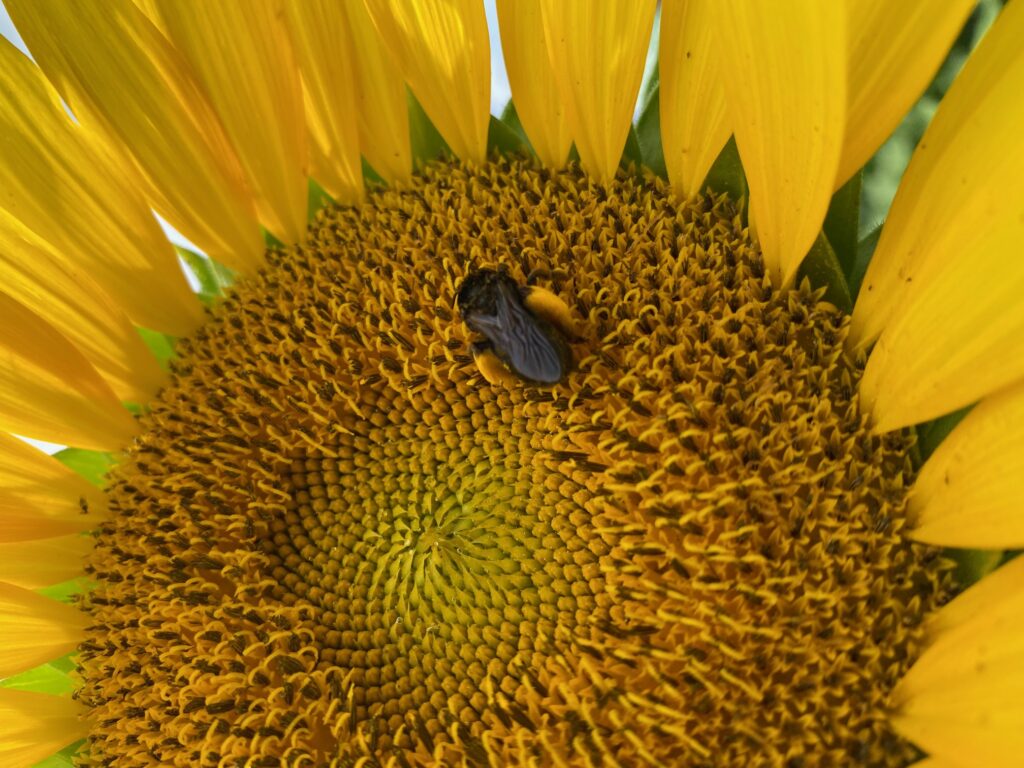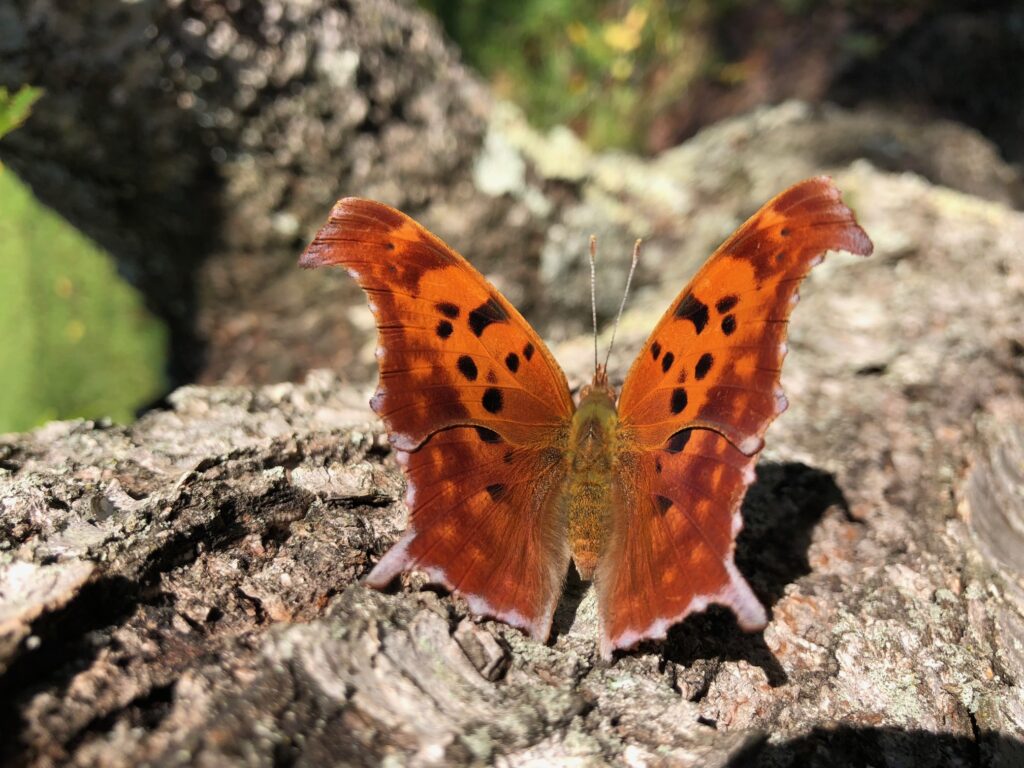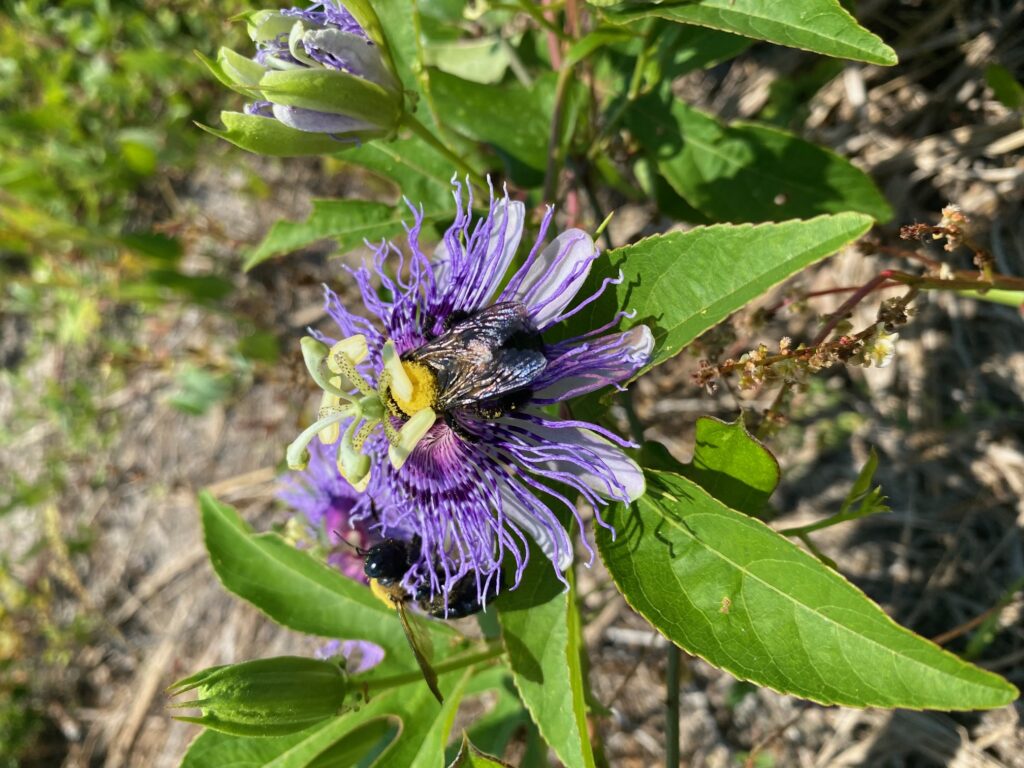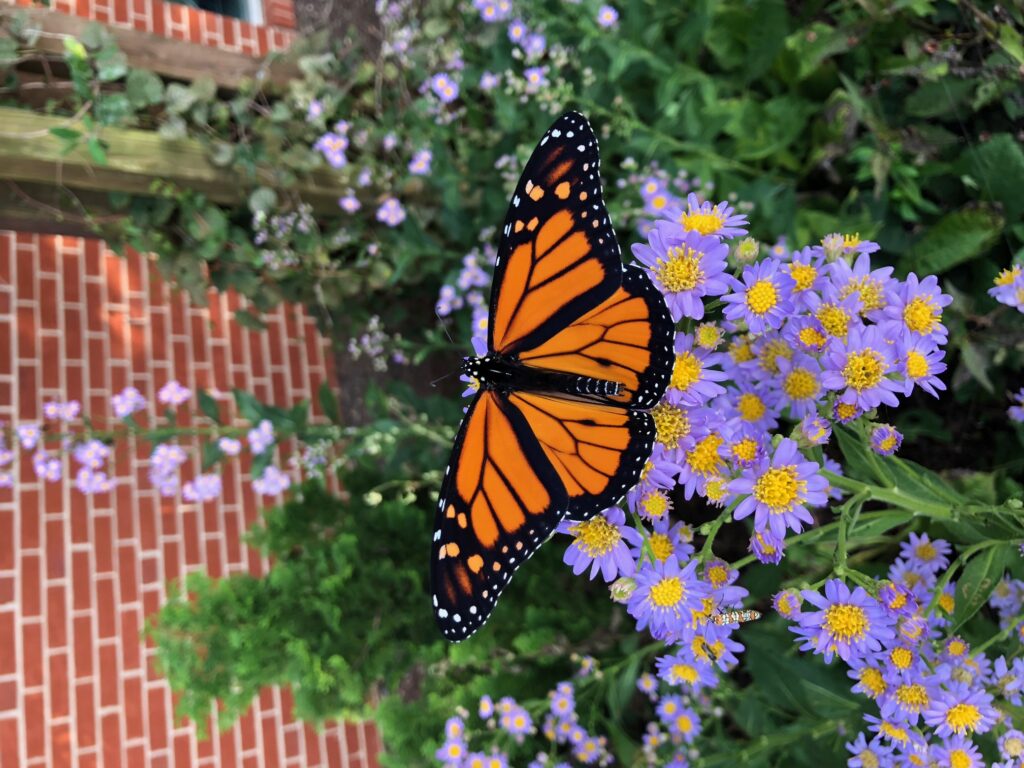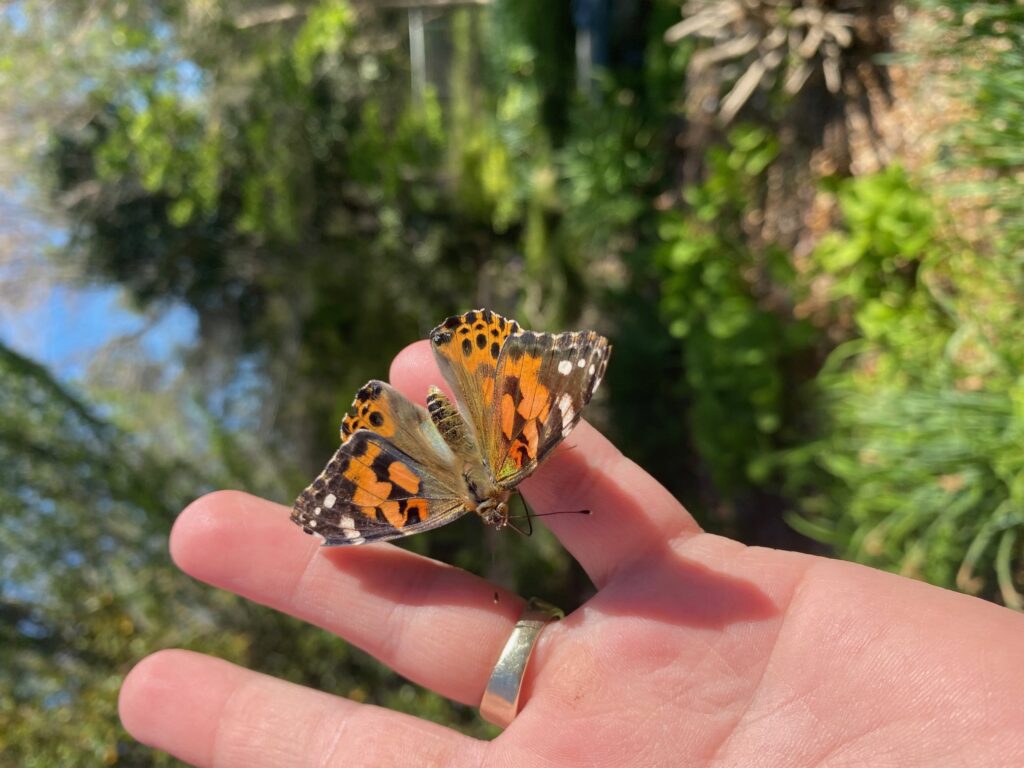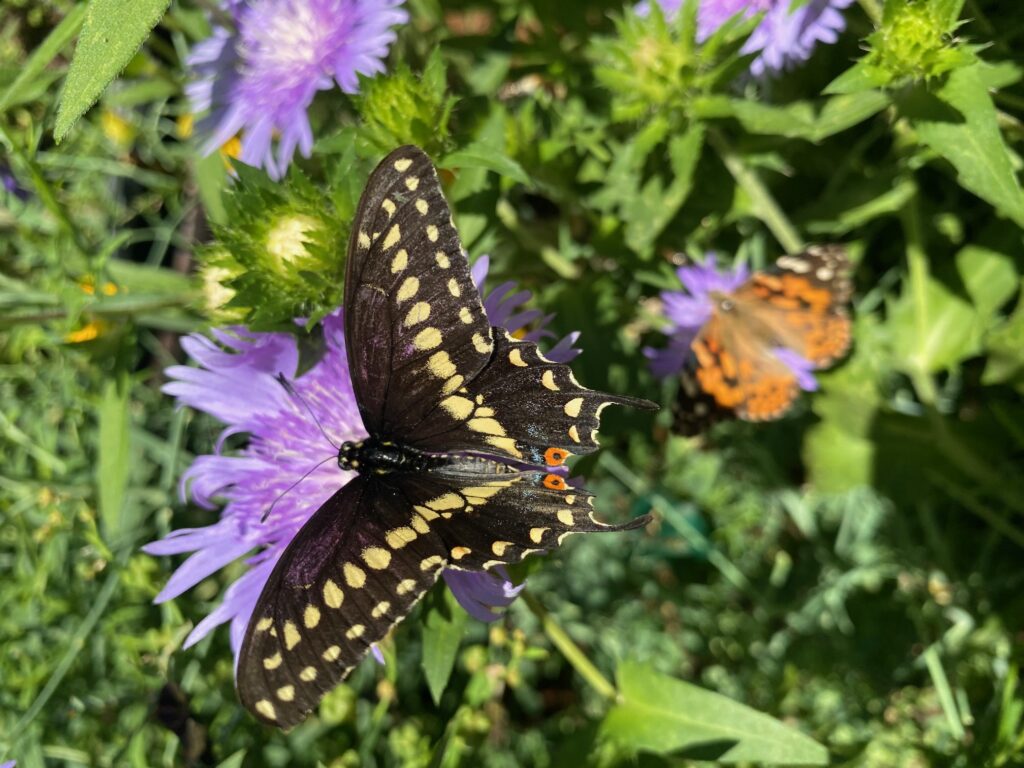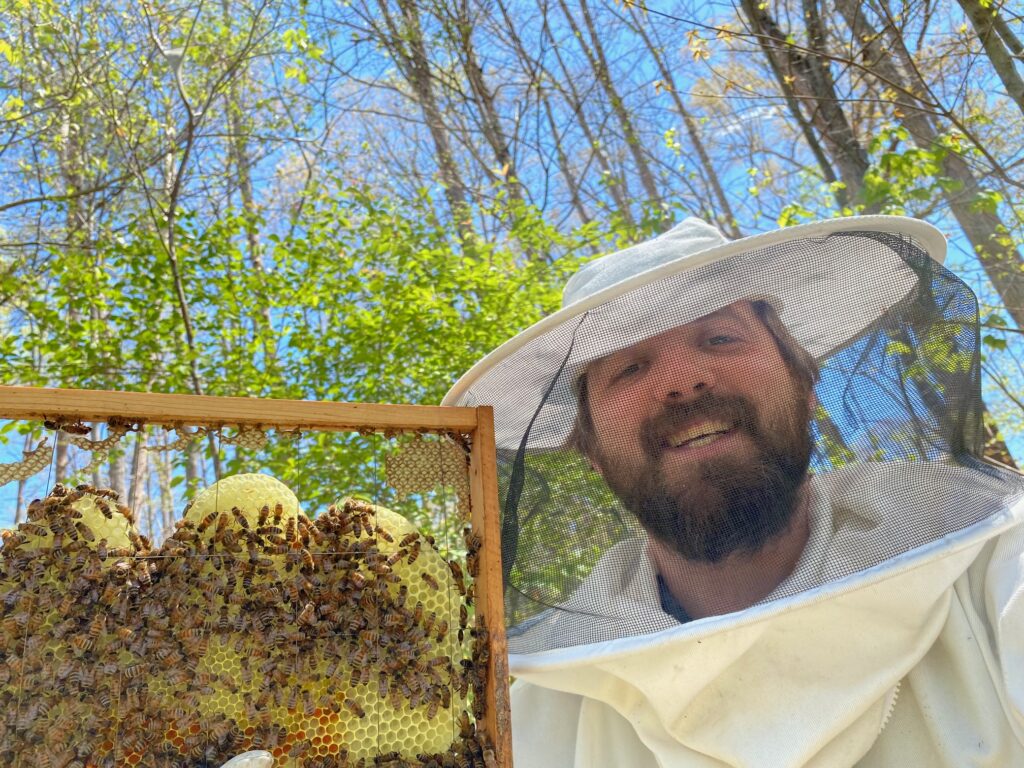Celebrate Pollinators Day
go.ncsu.edu/readext?939931
en Español / em Português
El inglés es el idioma de control de esta página. En la medida en que haya algún conflicto entre la traducción al inglés y la traducción, el inglés prevalece.
Al hacer clic en el enlace de traducción se activa un servicio de traducción gratuito para convertir la página al español. Al igual que con cualquier traducción por Internet, la conversión no es sensible al contexto y puede que no traduzca el texto en su significado original. NC State Extension no garantiza la exactitud del texto traducido. Por favor, tenga en cuenta que algunas aplicaciones y/o servicios pueden no funcionar como se espera cuando se traducen.
Português
Inglês é o idioma de controle desta página. Na medida que haja algum conflito entre o texto original em Inglês e a tradução, o Inglês prevalece.
Ao clicar no link de tradução, um serviço gratuito de tradução será ativado para converter a página para o Português. Como em qualquer tradução pela internet, a conversão não é sensivel ao contexto e pode não ocorrer a tradução para o significado orginal. O serviço de Extensão da Carolina do Norte (NC State Extension) não garante a exatidão do texto traduzido. Por favor, observe que algumas funções ou serviços podem não funcionar como esperado após a tradução.
English
English is the controlling language of this page. To the extent there is any conflict between the English text and the translation, English controls.
Clicking on the translation link activates a free translation service to convert the page to Spanish. As with any Internet translation, the conversion is not context-sensitive and may not translate the text to its original meaning. NC State Extension does not guarantee the accuracy of the translated text. Please note that some applications and/or services may not function as expected when translated.
Collapse ▲2025 Celebrate Pollinators Day!
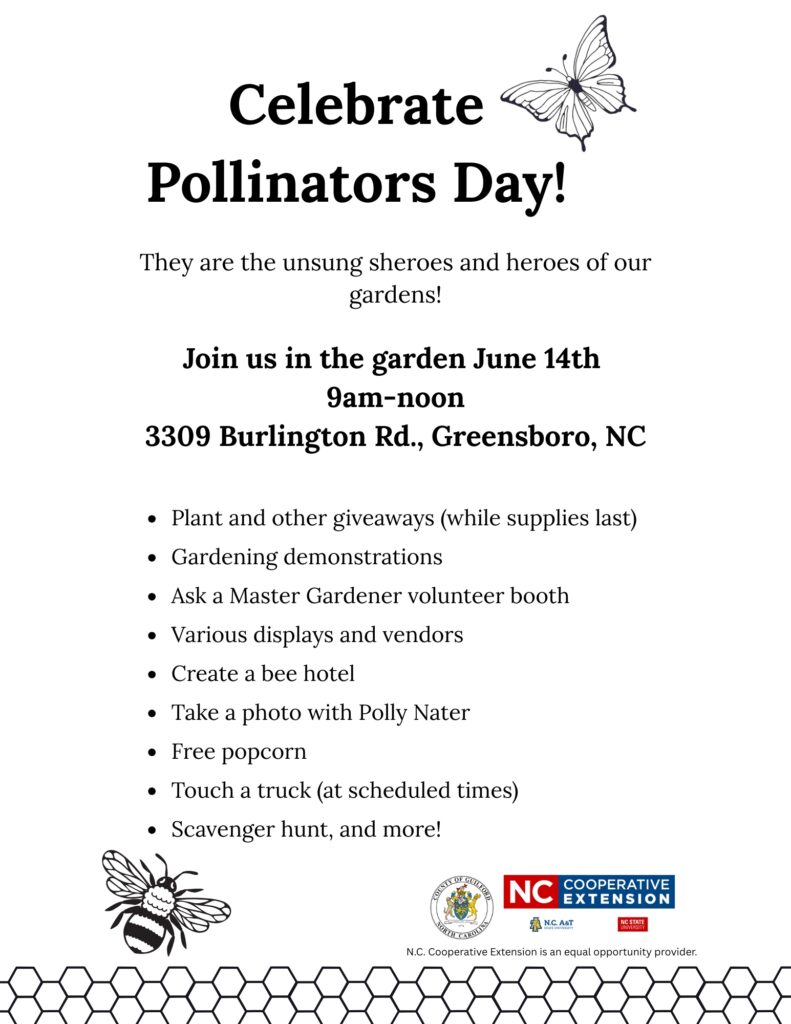
Join us on June 14th from 9 a.m. to 12 p.m. in the Demonstration Garden at the N.C. Cooperative Extension-Guilford County Center for a day full of fun and learning for the whole family!
Pollinators are the unsung sheroes and heroes of our gardens, and this event will celebrate and raise awareness about their vital role. (Want to start learning more about pollinators now? Keep reading below!) Explore a variety of informative table displays, create your own bee hotel, and pick up a goody bag (while supplies last). There will also be some vendors on sight and a fire truck and police cruiser for the kids (at scheduled times only). Don’t forget to snap a photo with Polly Nater, our friendly pollinator mascot, and check out the ‘cruise in’ car show happening on the property in partnership with Celebrate Pollinators Day.
Start spreading the word and let’s create some buzz about this year’s celebration!
For more information, call the Guilford County
Cooperative Extension office at 336-641-2400.
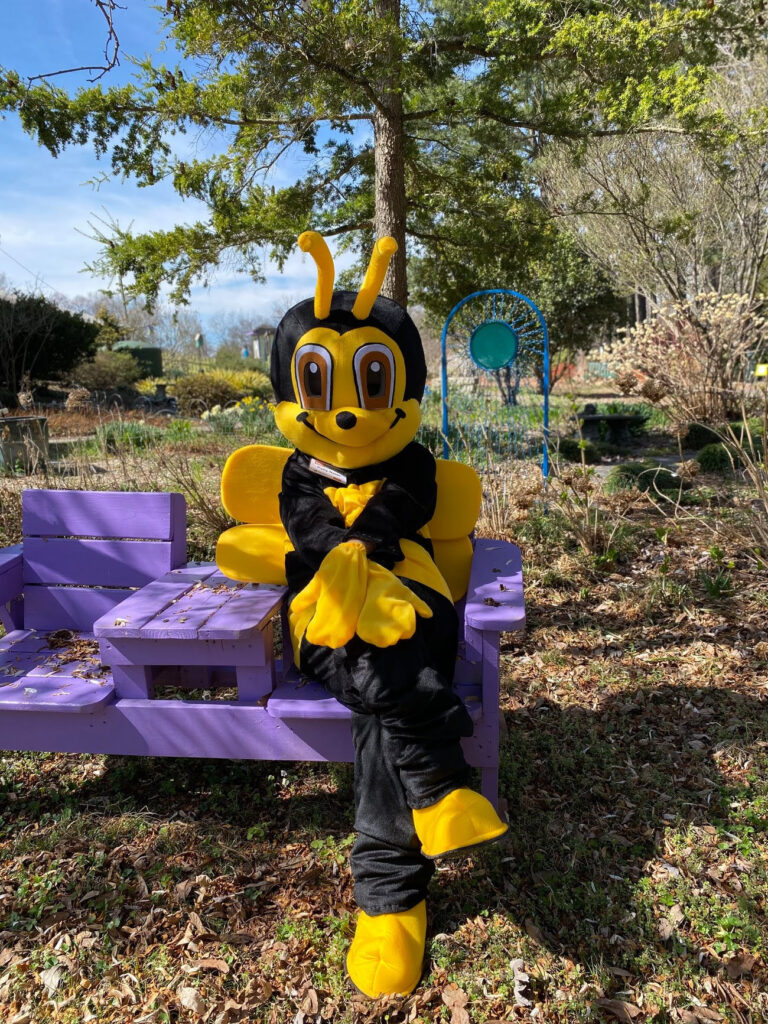
Why Pollinators? Read below to find out!
Pollinators are an essential component of North Carolina’s ecosystem, playing a critical role in the production of crops and the maintenance of natural habitats. The state is home to an extensive array of pollinators, including bees, butterflies, beetles, and birds, each of which fulfills a unique niche within the ecosystem. Given the vital role of pollinators, it is crucial to understand their behavior and habitat requirements to ensure their protection and preservation.
Bees, in particular, are the most important pollinators in North Carolina. According to the USDA, North Carolina ranks ninth in the nation for honey production, a reflection of the significant role that bees play in the state’s agricultural industry. Bee populations have been under threat in recent years, however, due to habitat loss, pesticides, and diseases. It is essential to implement policies that protect bee populations, such as the establishment of natural habitats, the use of less harmful pesticides, and the promotion of sustainable farming practices.
Butterflies are another crucial pollinator in North Carolina, particularly for native plants. The Monarch butterfly, in particular, is of significant concern. In recent years, Monarch populations have decreased significantly, resulting in an increased risk of extinction. The primary cause of this decline is habitat loss, with the destruction of milkweed, the sole food source for Monarch caterpillars, being a significant factor. Efforts to establish habitat restoration initiatives and the planting of milkweed can help to combat this issue.
Birds, such as hummingbirds, are also important pollinators in North Carolina. They are essential in pollinating many of the state’s native plants, such as cardinal flowers and bee balms. As with other pollinators, the preservation of their habitats is crucial for their continued survival. It is essential to promote policies that protect natural habitats, reduce deforestation, and prevent the creation of monoculture landscapes.
In conclusion, pollinators play an integral role in North Carolina’s ecosystem, and their protection and preservation are critical. Bees, butterflies, and birds all fulfill unique roles in the pollination process, and their habitat requirements must be considered when developing policies and initiatives. The establishment of natural habitats, the promotion of sustainable farming practices, and the use of less harmful pesticides are all essential measures in preserving North Carolina’s pollinators.





